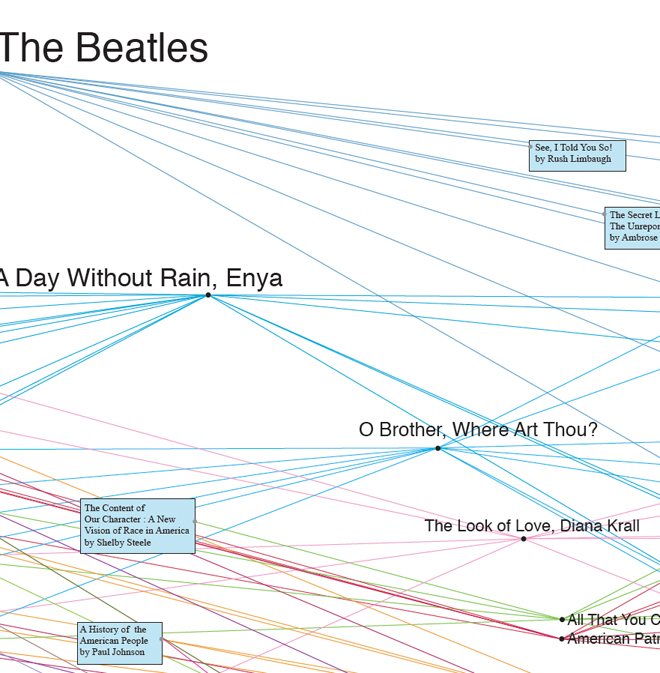Elmer the Intern has some questions for Angie Waller
Angie Waller: I don't think my project is drastically different from the idea of a library, in a sense it is conforming with that expectation. One characteristic of a library is it is a place where books are not marketed, they are categorized by subject and are often missing their graphic dust jackets. I was more interested in finding similarities in how a library groups books and how we collect information when we are online. In both scenarios, we often are reading text in a democratized context, often discovered through searching. That is an ideal of both the library and Internet scenario although it can be argued that is not always the case.
AW: I have been investigating ways to represent the things I do not know I do not know. In applying this theme to a library context, I thought it would be interesting to find a physical way to represent the intangible by grouping books with the word "unknown" in the title. I am not sure what effect this has had on the Dumbo community. I don't imagine the books have engaged many readers but hopefully they have enjoyed the surprise in discovering the multiple genres of books that deal with "unknowns." I will be presenting a more interactive element to this theme on Aug. 4 where I will have game contestants guess the questions people ask Internet search engines. In a sense we will be discussing the topics unknown to others and possibly ourselves.
AW: I am not sure what impact they have, they are not theorists I am consciously thinking about at this time. I usually follow my intuitions and am excited to discover when authors such as Eco and Baudrillard have said something that I feel resonates with something I am thinking. I realized in grad school that I am paralyzed if I reverse this equation.
Q: Data Mining the Amazon seems to make the same sort of social inversion as Unknown Unknowns. Instead of an individual creating a cyber identity through internet output, Data Mining the Amazon seems to provide a prescriptive snapshot of the American liberal or conservative par excellence. Has this two-way interaction between online environments and identities had a profound impact on your creative process over the past few years? Additionally, have you found that this interaction has changed in itself as technology progresses? Do you think this phenomenon is unique to online interactions, or do you think that other spaces, some physical, such as a library for instance, can lead on to both influence and be influenced depending on the structure of the environment?
AW: I don't think my subjects are limited to online environments. I like to think that my areas of inquiry are interesting in a long term period not reliant on an internet fad, but perhaps the online environment inspired the way I process the information I collect and the information I have access to. I think physical spaces are permeable to this influence as well.
Q: The Topless Temps project is both provocative and hilarious, illustrating many poignant social issues while also being a very entertaining concept. But you say that you actually got some earnest responses to the service. Two part question: was getting legitimate responses part of your intention when creating the project, and what was your interaction like with the individuals who would be interested in this service?
AW: The piece was made to relieve some of the anxiety I felt being an office temp. I was not interested in legitimate responses. Honestly, I don't know that I thought that far ahead at the time. I did receive one response from an interested customer. I remember he had an aol email address and I had already decided aol members were trouble based on my experience as a web designer. They were usually someone's mom or dad and not very computer savvy. I didn't respond to the email. My only regret is not keeping the domain name toplesstemps.com, that was gold.
_______________
Many thanks to Angie Waller for taking the time to answer these questions! Make sure you check out the rest of her work at www.angiewaller.com.
And if you haven't already, be sure to check out The Missing Library, organized by Annie Shaw, with participants Jen Kennedy, Liz Linden, Marie Lorenz, Michelle Rosenberg and Angie Waller.
-Elmer



No comments:
Post a Comment